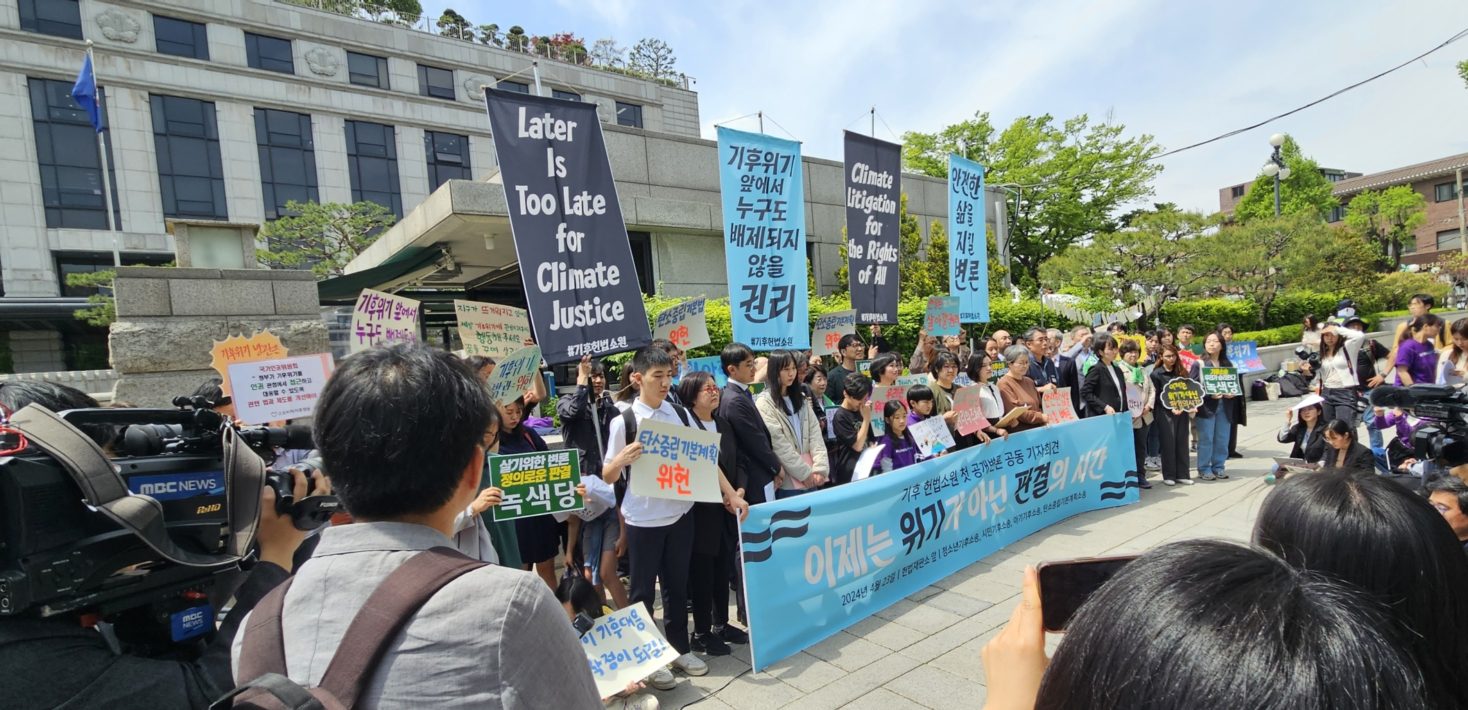Ahead of a hearing on Tuesday 21 May in South Korea’s Constitutional Court of four landmark cases in which about 200 people, including more than 60 children one of whom had not been born when the case was first filed, are arguing that the government is failing to adequately protect them from the harms of climate change, Amnesty International Korea’s Climate Justice Campaigner, Jiyoun Yoo, said:
“This is among the first major climate-related cases to reach a high court in Asia and the plaintiffs are arguing that South Korea’s government is not doing enough to curb greenhouse gas emissions.
“They contend that the state, by failing to act sufficiently to address the threat of climate change, has failed to meet its constitutional obligation to protect their fundamental rights, including the rights to life and a healthy environment.
The climate crisis is already upon us but the effects will be felt even more intensely by future generations. Cases like this are vital to safeguarding citizen’s rights
Amnesty International Korea’s Climate Justice Campaigner, Jiyoun Yoo
“Strategic litigation is a powerful tool which is being increasingly used to enforce states’ binding duty to protect people’s rights from the adverse impacts of the climate crisis and ensure there is no backsliding on the international commitments they made in 2015 to prevent average global temperatures from rising above 1.5°C this century.
“The climate crisis is already upon us but the effects will be felt even more intensely by future generations. Cases like this are vital to safeguarding citizen’s rights. Taking legal action against a state is often a long and arduous process which requires patience and perseverance and the courage of these pioneering plaintiffs is to be admired and applauded.”
Background
South Korea’s Constitutional Court is due to review existing testimony and accept additional submissions in a hearing tomorrow in which four climate justice cases have been combined. One of the cases involving the children is widely referred to as Woodpecker vs South Korea after the name given to the unborn child at the time the case was first filed, and who is now a plaintiff aged 18 months old. A decision on the case is expected later this year.


